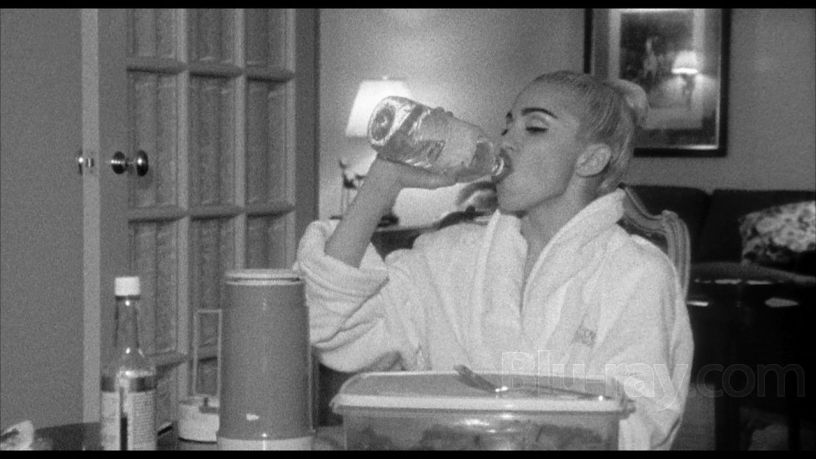Madonna: Truth or Dare follows the Queen of Pop on an artistically groundbreaking tour at arguably the height of her popularity. But this film is not only a glimpse at one of the biggest stars in music, at possibly her most important moment; it is the ultimate rock documentary.
The film opens in media res: the Blond Ambition Tour is coming to a close, and Madonna feels mostly numb. She’s too emotionally drained to feel really anything. As the documentary goes back, it’s not hard to see why: between battling the rainy season in Japan for weeks on end, losing her voice, juggling family & friends both beloved & estranged, her relationship with Warren Beatty, plus the threat of criminal charges.
She comes under fire from the Toronto police department, the Vatican, and even her father for a her racy performance. Her updated take on “Like a Virgin” was a genuine controversy back in 1990, and it’s not hard to see why. (Even Miley Cyrus hasn’t pulled something like this!)
In one of the film’s best scenes, Madonna addresses these concerns head-on. She defends herself to the press:
My show is not a conventional rock show, but a theatrical presentation of my music. And, like theater, it asks questions, provokes thoughts, and takes you on an emotional journey: portraying good and bad, light and dark, joy and sorrow, redemption and salvation. I do not endorse a way of life, but describe one – and the audience is left to make its own decisions and judgments.
This nugget is an important one: “I do not endorse a way of life, but describe one.” Many artists, back in 1990 and certainly today, present everything as part of their own brand. Their songs, performances, concerts, are representative and autobiographical of them in some way. Not to say that the Blond Ambition Tour doesn’t have autobiographical elements, but she clarifies that it describes a lifestyle rather than endorsing one, functioning as “a theatrical presentation of [her] music.”
It is often taken for granted that what a pop artist does and says represents them, rather than some persona or character; we do not allow them the artistic license we do a fictional author, a film director, even a traditional musical theater songwriter. This is likely where much of the controversy comes into play: we don’t see Madonna, onstage, as a fictional being within the constructs of her Blond Ambition universe; she is she, herself, which may be why the content is so nerve-rattling for some.
Of course, this is the central conflict of Truth or Dare. At times it is less a concert tour documentary and more an existentialist assessment of Madonna, or any rock star. Her then-boyfriend Warren Beatty comments “she doesn’t want to live off-camera, much less talk.” This isn’t hard to believe, given her numerous onstage & on-screen antics, though doesn’t quite fit with whispers about her later in the film: “Madonna does feel more in control when she doesn’t extend her personal emotion, her love, her exposure to sensitivity, too much.” “Madonna’s very difficult to reach. She’s put up many barriers.”
This disconnect is what makes Madonna: Truth or Dare so exciting. Not only do we play witness to two worlds – the grainy, black-and-white labyrinth of hotel rooms and backstage arenas, foiled with the electrifying technicolor concert footage – but multiple, conflicting personalities of Madonna. Like the Blond Ambition Tour, this film makes no clear statement. You don’t walk away feeling one way or the other, but are left with a series of impressions forming a complex image of a supremely talented yet deeply fractured individual.



I so remember seeing this at the theater when it came out. She was such a mess, the worst “mother” and utterly self-absorbed. The shows were awesome, though.
LikeLike
Lol!! I would have been too young but this film is fascinating to me because it seems like it would have been such bad PR during that time, given how she comes across. Unless it’s all an act or part of her bigger vision! 🙂
LikeLiked by 1 person
I feel she thought she was in control of her image, wanting to show all sides of herself. She didn’t mind coming off selfish with family and old friend bc it’s “real,” but I’m less confident she knew how phony she came across with her cast and crew. And the Coke bottle blow job scene was just ridiculous. She must not only be the best performer, but give a better bj than any gay man. Oy. 🙂
LikeLike
Great post, I’ve always loved Madonna’s approach to her work, she isn’t afraid to express herself.
LikeLike